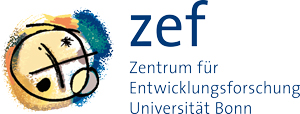One Health and Digitalization – Integrated Surveillance, Artificial Intelligence and Big Data
- Title:
- One Health and Digitalization – Integrated Surveillance, Artificial Intelligence and Big Data
- Duration:
- ca. 6 months
- Contact:
- Prof. Dr. Katja Bender (H-BRS, IZNE), Dr. Christian Böber, Dr. Timo Falkenberg (ZEF, One Health Forschungskolleg)
- Sponsor:
- Ministry of Culture and Science of the German State of North Rhine-Westphalia (MKW)
- Partner:
- Center for Development Research (ZEF), One Health Forschungskolleg und die Hochschule Bonn-Rhein-Sieg, University of Applied Sciences (H-BRS), International Centre for Sustainable Development (IZNE)

„One Health and Digitalization“ (Workshops by IZNE & ZEF)
The “One Health” concept adopts an integrative perspective of health, recognizing the intrinsic interconnections between human, animal and environmental health. As such, “One Health” is a multi-sectoral approach including for example the health, water, food or agricultural sector.
The terms “digital health”, “digital water” or “digital food” are commonly used by now. Yet, these simplifying terms include a broad diversity of specific digital technologies, potential usages and implications. The development and use of digital technologies and applications influences information and communication structures and enables the establishment of new forms of organizations and coordination. Digital technologies strongly influence political, societal and economic processes and are relevant for both private and public sector activities. While questioning existing norms, values or formal institutions, existing structures simultaneously shape the adoption and diffusion of digital technologies.
In this context, digitalization offers the potential to induce improvements in the performance of each subsector inducing better outcomes and facilitating access to health care, clean water and adequate food for vulnerable groups. For example, telemedicine and mobile health applications may improve access to health services for excluded population groups, digital integration of critical control points can promote the quantity and quality of water supply, and digital food safety applications facilitate the control of the food chain, and thereby foster the reliability of food quality. Beyond sectoral improvements, digital technologies offer an important opportunity for improved coordination among the different sectors relevant for One Health.
To adequately address the multiple dimensions and complexities of the subject area “One Health and Digitalization”, a multidisciplinary research approach is required. Under the umbrella of the ICB, two workshops on the topic of digitalization and “One Health” took place in 2019: the first workshop took place in São Paulo and aimed at exploring joint interests in and possibilities for international cooperation on the topics. A follow-up regional workshop in Bonn brought together researchers from different disciplines and opened the space for discussion how interdisciplinary work on the topics is possible.
A few lessons learnt from the workshops can be summarized as follows:
A key question posed was: how can the different pressures on the food industry be reconciled? There are pressures of global population growth (how to feed 9 billion people), of more sustainable production (how can sustainable intensification work), of the supply chain (how can the inputs of production become more sustainable, while remaining profitable), as well as the pressures of consumers (how can food affordability and sustainability be reconciled).
The role of digitalization regarding One Health and sustainable development was discussed. The use of remote sensing and GIS coupled with Big Data from cell phones, internet service providers, surveillance networks, scientific databases etc. provides an opportunity to identify and predict disease hotspots, zoonotic spillovers and disease distribution through the integration of data sources (human, veterinary an environmental) and machine learning.
Regarding the sustainable intensification of agricultural production, the use of sensors and drones was discussed, which allows for targeted fertilization and pesticide application as well as improved water use management.
A more differentiated understanding of the positive or negative effects of digitalization on the One Health sector is needed.
There is also a need for an understanding of the factors influencing the diffusion of digital technologies, including an understanding of the role of contextual factors for the outcomes of digitalization in different sectors.
The political economy of digitalization needs to be penetrated more deeply, e.g. the setting of policy agendas and decision making, as this directly affects implementation.
Questions of data protection and data ownership: does legislation act as a disabling environment here? This is particularly relevant as there are large data gaps in One Health; more qualitative and quantitative data would need to be collected.
Inter- and especially transdisciplinary approaches can be fruitful solutions for a deeper understanding and closing the data gaps, but private‒public partnerships should also be considered.
Read on the project in detail in the Annual Report 2019: Download.
The explanations on the workshops “One Health and Digitalization” are based on the project reports of Prof. Dr. Katja Bender, Dr. Christian Böber and Dr. Timo Falkenberg (ZEF, One Health Research College).
Sponsor

The project „One Health and Digitalizatiion” is sponsored by the Ministry of Culture and Science of the German State of North Rhine-Westphalia (MKW).